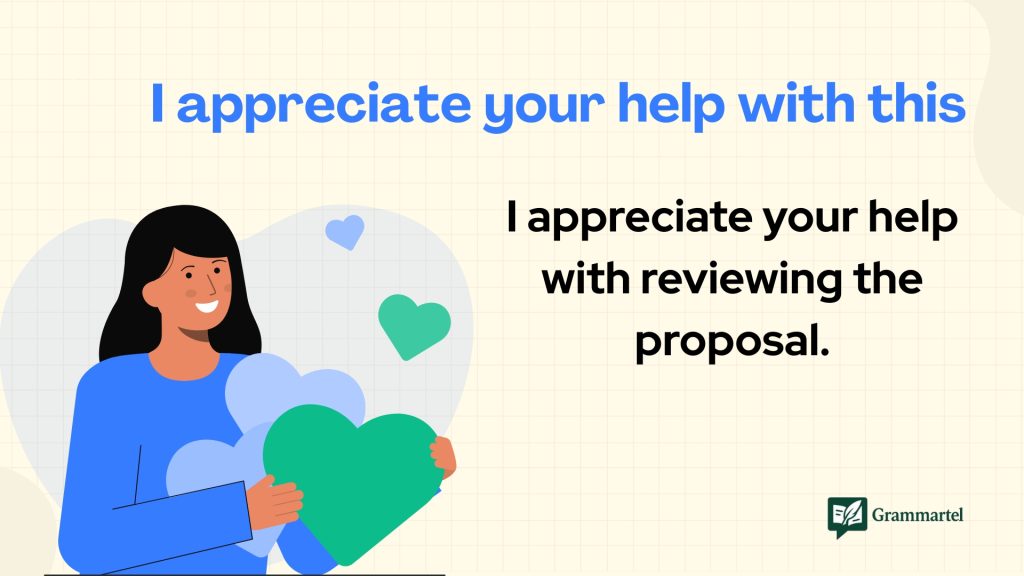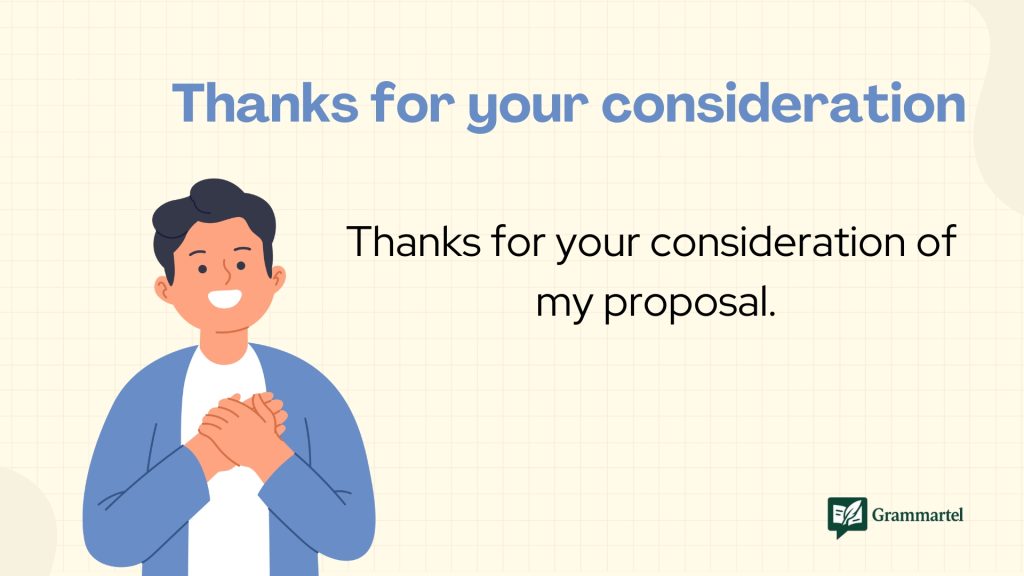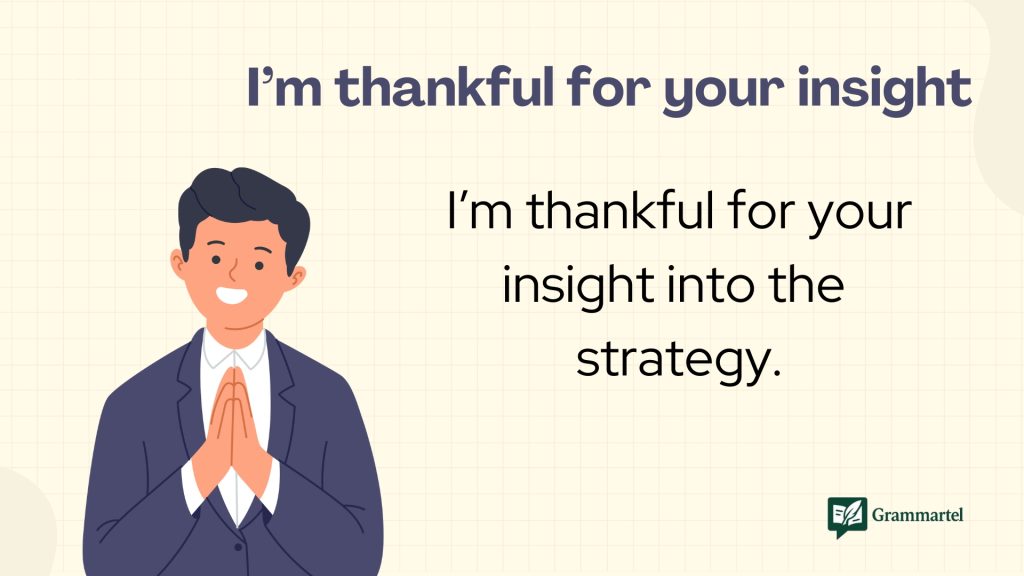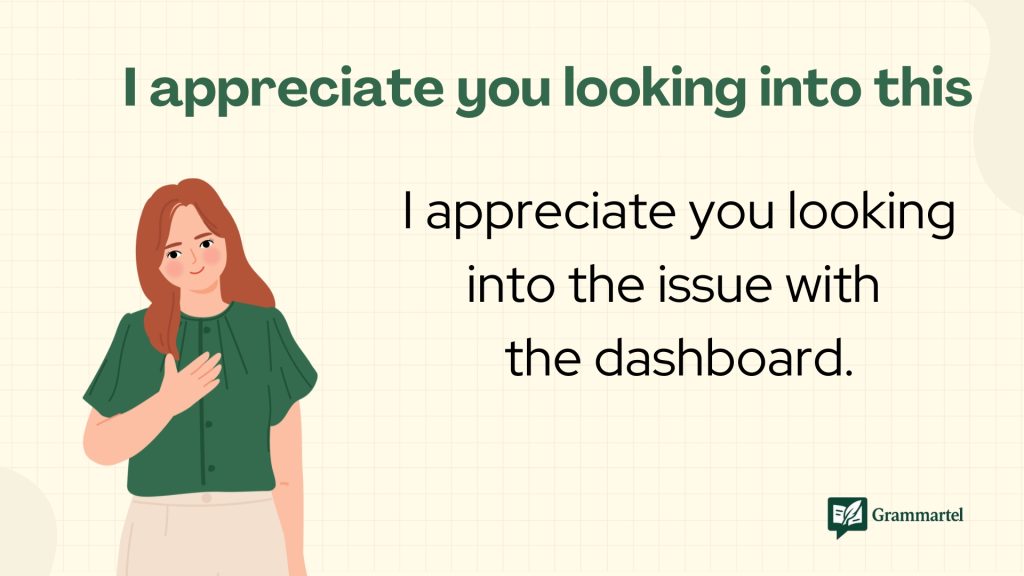Sometimes, saying “Thank you in advance” can sound a bit too formal—or worse, a little pushy. You might mean well, but it can come across as if you’re assuming the other person will help you no matter what. So what can you say instead? Plenty, actually. Whether you’re writing an email to a coworker, messaging a client, or texting a friend, having a few polite and warm alternatives helps you sound more thoughtful and human. In this article, we’ll share 40 simple phrases you can use instead, with real-life examples to make things even easier.
What Does “Thank You in Advance” Mean?
“Thank you in advance” is a polite way to show you’re grateful before someone helps you. It means you trust they will do what you asked. People use it in emails or messages when they need help or a favor. This phrase can make your request sound more gentle. It also shows respect and kindness. But be careful—sometimes it can feel like pressure. If you use it right, it builds goodwill. It tells the other person, “I believe in your help.” So, when you say “thank you in advance,” you’re not just being nice. You’re also setting a friendly tone for teamwork and support.
When to Use “Thank You in Advance”
Use “thank you in advance” when you ask for something and expect a reply or action later. It works best in emails to coworkers, teachers, or clients. It’s useful when you want to stay polite and professional. For example, if you ask someone to review a file or give feedback, this phrase shows trust and gratitude. But avoid using it if the request is big or if you’re not sure they will help. It could feel rude. Only use it when you have a good reason to believe the person will help. Used wisely, it builds respect and keeps the message warm and clear.
40 Polite Alternatives to Say “Thank You in Advance”
1. I appreciate your help with this.

Meaning: Gratitude for expected assistance.
Explanation: Acknowledges support without assuming action.
Example: I appreciate your help with reviewing the proposal.
Best Use: When you’ve already asked for help and want to close respectfully.
Worst Use: Before making a clear request.
Tone: Warm, professional
2. Thanks so much for considering this.
Meaning: Gratitude for giving your request attention.
Explanation: Shows appreciation even if no help is given.
Example: Thanks so much for considering my application.
Best Use: Job/internship or grant requests.
Worst Use: When urgent action is expected.
Tone: Appreciative, soft
3. I’d be grateful for your support.
Meaning: Expresses hope and gratitude together.
Explanation: Sounds humble and respectful.
Example: I’d be grateful for your support on this report.
Best Use: Internal work collaborations or mentoring.
Worst Use: When you need to be more assertive.
Tone: Courteous, slightly formal
4. Looking forward to your response.
Meaning: Expresses anticipation rather than thanks.
Explanation: Encourages timely reply without pressure.
Example: Looking forward to your response regarding the schedule.
Best Use: Emails requesting information or feedback.
Worst Use: When you’ve already asked many times.
Tone: Neutral, polite
5. Many thanks for your attention to this matter.
Meaning: Gratitude for time and focus.
Explanation: Formal and respectful.
Example: Many thanks for your attention to this compliance issue.
Best Use: Legal, academic, or customer service contexts.
Worst Use: In casual messages.
Tone: Formal, professional
6. Thanks for your time and help.
Meaning: Acknowledges effort and availability.
Explanation: Combines gratitude for both attention and action.
Example: Thanks for your time and help with the interview process.
Best Use: Wrap-up line in work-related requests.
Worst Use: Without asking for anything.
Tone: Warm, respectful
7. I truly appreciate your input.
Meaning: Shows personal gratitude.
Explanation: Highlights the value of someone’s opinion.
Example: I truly appreciate your input on this strategy.
Best Use: When asking for expert advice or feedback.
Worst Use: When asking for unrelated help.
Tone: Sincere, professional
8. I’m thankful for your guidance.
Meaning: Appreciation for someone’s direction.
Explanation: Emphasizes mentorship and leadership.
Example: I’m thankful for your guidance on this project.
Best Use: To a senior or mentor.
Worst Use: Peer-to-peer casual requests.
Tone: Respectful, deferential
9. Much appreciated.
Meaning: A brief expression of gratitude.
Explanation: Informal but polite.
Example: Could you forward the files when you get a chance? Much appreciated.
Best Use: Quick, casual workplace emails.
Worst Use: Formal communication.
Tone: Casual, polite
Give this a read : 40 Better Ways to Say “I Will Let You Know” (With Real-Life Examples).
10. Thanks again for your support.
Meaning: Emphasizes ongoing appreciation.
Explanation: Suitable when assistance is recurring.
Example: Thanks again for your support with the new hire orientation.
Best Use: When you’ve been helped before.
Worst Use: First-time requests.
Tone: Friendly, familiar
11. Thanks for your consideration.

Meaning: Gratitude for reviewing a request.
Explanation: Respectful and non-presumptive.
Example: Thanks for your consideration of my proposal.
Best Use: Applications, formal requests.
Worst Use: When confirmation is already given.
Tone: Professional, neutral
12. I appreciate any help you can provide.
Meaning: Thanks in advance but with humility.
Explanation: Does not assume help will be given.
Example: I appreciate any help you can provide with this task.
Best Use: Asking for assistance or guidance.
Worst Use: When issuing a directive.
Tone: Polite, open-ended
13. Thanks in advance for your time.
Meaning: Acknowledges someone’s time investment.
Explanation: Polite and respectful of their availability.
Example: Thanks in advance for your time reviewing the brief.
Best Use: Scheduling meetings or sending documents.
Worst Use: When over-asking or being too frequent.
Tone: Formal, appreciative
14. I value your feedback.
Meaning: Gratitude for opinion or critique.
Explanation: Shows appreciation for their insights.
Example: I value your feedback on the design.
Best Use: Review and collaboration.
Worst Use: When a decision is already final.
Tone: Respectful, thoughtful
15. Thanks for your cooperation.
Meaning: Expresses thanks for working together.
Explanation: Often used in instructions or group settings.
Example: Thanks for your cooperation in meeting the deadline.
Best Use: Operational or administrative communication.
Worst Use: One-on-one casual requests.
Tone: Neutral, semi-formal
16. Your help is much appreciated.
Meaning: Acknowledges effort with gratitude.
Explanation: Shows you don’t take help for granted.
Example: Your help is much appreciated on this tight deadline.
Best Use: Group projects or team efforts.
Worst Use: When no help has yet been given.
Tone: Warm, inclusive
17. Thanks for giving this your attention.
Meaning: Appreciation for time and focus.
Explanation: Highlights respect for their priorities.
Example: Thanks for giving this your attention today.
Best Use: Time-sensitive or serious matters.
Worst Use: Non-urgent updates.
Tone: Formal, respectful
18. I’d appreciate your thoughts.
Meaning: Requests input with respect.
Explanation: Invites perspective openly.
Example: I’d appreciate your thoughts on the new direction.
Best Use: Early stages of planning.
Worst Use: Closed-ended decisions.
Tone: Engaging, thoughtful
19. I know your time is valuable—thank you.
Meaning: Shows gratitude and consideration.
Explanation: Acknowledges effort and prioritization.
Example: I know your time is valuable—thank you for reviewing this.
Best Use: Senior or executive-level communication.
Worst Use: Day-to-day casual updates.
Tone: Gracious, formal
20. Thank you for your prompt attention.
Meaning: Expresses urgency politely.
Explanation: Encourages timely response without pressure.
Example: Thank you for your prompt attention to this matter.
Best Use: When deadlines are involved.
Worst Use: For non-urgent topics.
Tone: Formal, courteous
21. Thanks for your willingness to help.
Meaning: Gratitude for being open to assist.
Explanation: Recognizes attitude more than the action.
Example: Thanks for your willingness to help during this busy time.
Best Use: Team collaboration.
Worst Use: When the person hasn’t volunteered.
Tone: Warm, encouraging
22. I’d be thankful for any input.
Meaning: Invites contribution with humility.
Explanation: Open to any level of help.
Example: I’d be thankful for any input on the outline.
Best Use: Brainstorming or drafts.
Worst Use: Finalized decisions.
Tone: Polite, inclusive
23. Your support means a lot.
Meaning: Emphasizes emotional appreciation.
Explanation: Goes beyond just task-related thanks.
Example: Your support means a lot during this transition.
Best Use: During challenging or meaningful moments.
Worst Use: Transactional emails.
Tone: Personal, heartfelt
24. I’m grateful for your time.
Meaning: Appreciation for someone’s schedule.
Explanation: A softer variation of time-based thanks.
Example: I’m grateful for your time reviewing this.
Best Use: Requests to busy professionals.
Worst Use: Chatty or informal requests.
Tone: Gracious, formal
25. Thanks for making time for this.
Meaning: Thanks for prioritizing the request.
Explanation: Indicates understanding of busy schedules.
Example: Thanks for making time to review my slides.
Best Use: When someone rearranges to help you.
Worst Use: Generic mass emails.
Tone: Friendly, respectful
26. I’m thankful for your insight.

Meaning: Appreciation for someone’s wisdom.
Explanation: Focused on their valuable perspective.
Example: I’m thankful for your insight into the strategy.
Best Use: To experts or mentors.
Worst Use: When you’re only asking for simple tasks.
Tone: Professional, deferential
27. Let me thank you in advance for your help.
Meaning: A formal but pre-emptive thank-you.
Explanation: Slightly anticipatory, yet courteous.
Example: Let me thank you in advance for your help resolving this.
Best Use: Formal communication, legal or admin.
Worst Use: Casual text or chat.
Tone: Formal, classic
28. I appreciate your attention to detail.
Meaning: Thanks for thoroughness.
Explanation: Makes the recipient feel valued.
Example: I appreciate your attention to detail on this report.
Best Use: When you know the person is meticulous.
Worst Use: When attention to detail isn’t required.
Tone: Positive, encouraging
29. Your expertise is appreciated.
Meaning: Grateful for specialized knowledge.
Explanation: Highlights respect for their skills.
Example: Your expertise is appreciated on this issue.
Best Use: Working with subject matter experts.
Worst Use: For generic or admin tasks.
Tone: Respectful, formal
30. Thanks for keeping me in the loop.
Meaning: Grateful for communication.
Explanation: Reinforces value of inclusion.
Example: Thanks for keeping me in the loop about the project timeline.
Best Use: Project collaboration.
Worst Use: When you haven’t actually been informed.
Tone: Friendly, conversational
31. I sincerely appreciate your assistance.
Meaning: Deep appreciation for support.
Explanation: Stronger tone of thankfulness.
Example: I sincerely appreciate your assistance on this issue.
Best Use: Help that involves extra effort.
Worst Use: Light, everyday requests.
Tone: Formal, sincere
32. Thanks for bearing with me.
Meaning: Gratitude for patience.
Explanation: Useful when there’s been delay or complexity.
Example: Thanks for bearing with me during the delay.
Best Use: Follow-up after a delay.
Worst Use: Initial requests.
Tone: Casual, self-aware
33. I’ll be grateful for your cooperation.
Meaning: Thanks in expectation of teamwork.
Explanation: Formal but often seen in notices or policies.
Example: I’ll be grateful for your cooperation on these changes.
Best Use: Notices, group messages.
Worst Use: One-on-one requests.
Tone: Neutral, institutional
34. Much obliged.
Meaning: A traditional phrase of gratitude.
Explanation: Old-fashioned but charming in tone.
Example: If you could send it over by noon, much obliged.
Best Use: Friendly or slightly formal exchanges.
Worst Use: In modern corporate or tech settings.
Tone: Courteous, a bit old-school
35. Thanks again for taking the time.
Meaning: Repeat gratitude for time spent.
Explanation: Especially good for follow-ups.
Example: Thanks again for taking the time to meet.
Best Use: Wrapping up a meeting or task.
Worst Use: Before the time has been given.
Tone: Friendly, appreciative
36. Your time and attention are greatly appreciated.
Meaning: Combines two key forms of gratitude.
Explanation: Emphasizes effort and focus.
Example: Your time and attention are greatly appreciated on this.
Best Use: Long or detailed requests.
Worst Use: Simple favors.
Tone: Formal, complete
37. I respect your time—thanks for reading.
Meaning: Acknowledges effort to review something.
Explanation: Works well with longer messages or briefs.
Example: I respect your time—thanks for reading through the update.
Best Use: Long emails or proposals.
Worst Use: Short, informal notes.
Tone: Gracious, considerate
Another gem awaits : 40 Alternatives Ways to Say “Please Let Me Know Your Thoughts” (With Examples).
38. Thanks a ton.
Meaning: Casual expression of big thanks.
Explanation: Informal, fun variation.
Example: Thanks a ton for helping me out today!
Best Use: Friendly workplace or peers.
Worst Use: Formal emails.
Tone: Casual, enthusiastic
39. I appreciate you looking into this.

Meaning: Thanks for investigating something.
Explanation: Good for follow-ups and problem-solving.
Example: I appreciate you looking into the issue with the dashboard.
Best Use: Tech support or troubleshooting.
Worst Use: When the issue hasn’t yet been assigned.
Tone: Neutral, practical
40. Thanks for doing this.
Meaning: Plain and direct thanks.
Explanation: Simple acknowledgment of action.
Example: Thanks for doing this on such short notice.
Best Use: Familiar team settings.
Worst Use: Very formal or high-level comms.
Tone: Friendly, straightforward
Conclusion
Words matter, especially when you’re asking someone for help. A small change in tone can make a big difference in how your message feels. Using the right phrase shows respect, builds trust, and keeps things friendly. The next time you write “Thank you in advance,” pause for a moment—maybe one of these 40 options will fit better. It’s all about keeping communication clear, kind, and genuine.
Stay in learning mode—explore more with Grammartel.

